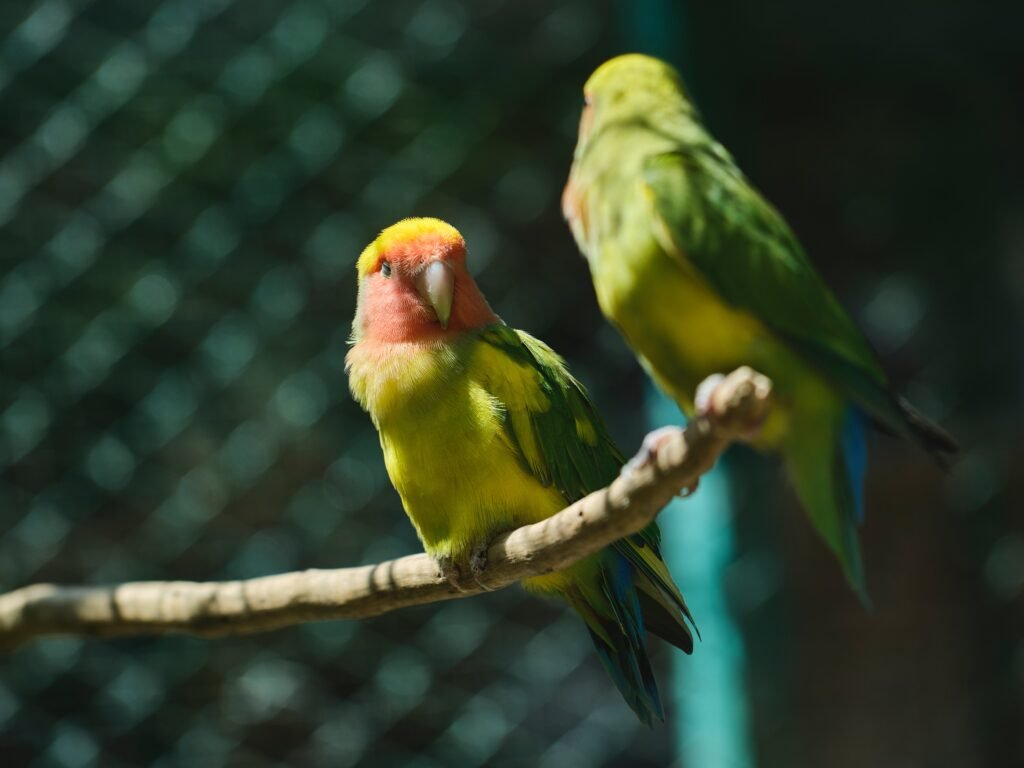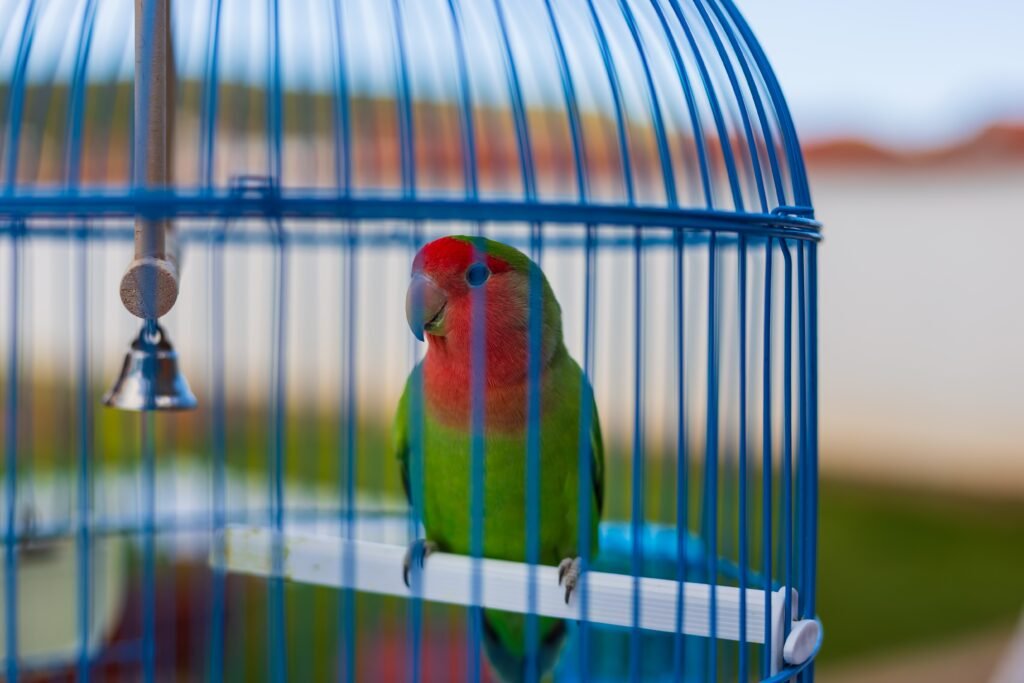Lovebirds are small, colorful parrots that are beloved pets for many bird enthusiasts. These social birds are known for their affectionate nature and charming personalities. As a responsible lovebird owner, understanding their habits and behaviors is crucial for their overall well-being. One aspect that often raises questions is their bathroom habits, particularly how often lovebirds poop. In this article, we will delve into this topic to provide you with a comprehensive understanding of lovebird bathroom habits.
Lovebird Digestive System
Lovebirds have a relatively fast metabolism, which means they process food rather quickly. Their digestive tract consists of several parts, including the crop, proventriculus, gizzard, small intestine, and large intestine. It is important to note that lovebirds are seed eaters and require a diet high in fiber to aid in their digestion.
The crop is the first part of the digestive system where food is temporarily stored before moving to the proventriculus, which is the glandular stomach. From there, the food enters the gizzard, a muscular organ that grinds the food into smaller particles. The small intestine is responsible for absorbing nutrients, while the large intestine is involved in water absorption and the formation of feces.
Pooping Frequency
Lovebirds have a relatively high pooping frequency. On average, they may poop anywhere from 20 to 30 times within a 24-hour period. However, it is important to note that the pooping frequency can vary depending on several factors, such as diet, activity level, and overall health.
Factors Affecting Pooping Frequency
- Diet: The type of food you provide your lovebird can have a significant impact on their pooping frequency. A high-fiber diet, consisting of a variety of fruits, vegetables, and pellets, promotes regular bowel movements. These foods provide the necessary nutrients and fiber to keep their digestive system healthy and functioning properly. On the other hand, a diet primarily consisting of seeds can result in less frequent pooping since seeds are low in fiber.
- Water intake: Adequate hydration is essential for healthy digestion. If your lovebird isn’t drinking enough water, it may lead to a decrease in pooping frequency. Make sure to provide fresh water daily and encourage your bird to drink by offering water-rich fruits and vegetables. This will help maintain their overall digestive health and prevent any issues related to dehydration.
- Activity level: Lovebirds are active birds that love to play and explore. Increased physical activity can stimulate their digestive system, leading to more frequent pooping. Providing plenty of toys and opportunities for exercise can contribute to a healthy digestive system and regular bowel movements.
- Stress levels: Lovebirds are sensitive creatures, and stress can affect their digestive health. Changes in their environment, such as moving to a new cage or the introduction of a new companion, may result in changes in their pooping habits. It is essential to create a calm and secure environment for your lovebird to minimize stress and maintain regular pooping habits.
Signs of Healthy Poop
While understanding the frequency of lovebird pooping is important, it is equally crucial to monitor the quality of their droppings. Healthy lovebird poop typically consists of three components: urates, feces, and clear liquid.
- Urates: Lovebirds produce solid, white or cream-colored urates, which are the equivalent of urine in mammals. Urates should have a firm consistency. Any changes in color or consistency may indicate a potential health issue and should be monitored closely.
- Feces: The feces of a healthy lovebird is usually dark green or brown in color, depending on their diet. It should be well-formed and not too watery or too dry. Changes in color, consistency, or odor may indicate an imbalance in their diet or potential digestive problems.
- Clear liquid: Along with urates and feces, lovebirds also produce clear liquid. This liquid is a result of their efficient kidney function and is a normal component of their droppings. However, excessive clear liquid or a sudden increase in its volume may be a sign of kidney or urinary issues and should be evaluated by a veterinarian.
It is important to note that any significant changes in the color, consistency, or frequency of their droppings may indicate an underlying health issue. If you notice abnormalities, it is advisable to consult a veterinarian experienced in avian care for a proper diagnosis and treatment.
Cleaning and Hygiene
Regular cleaning of your lovebird’s cage is crucial for maintaining a healthy environment. Since lovebirds tend to poop frequently, their cage can quickly become messy. Aim to clean the cage daily, removing any droppings and replacing soiled bedding or liners. This will prevent the buildup of bacteria and ensure a clean and hygienic living space for your lovebird.
Additionally, ensure that your lovebird has access to fresh bathing water. Lovebirds enjoy bathing, and it helps them keep their feathers clean and healthy. Providing a shallow dish or bird bath a few times a week is recommended. This will not only help with their hygiene but also provide them with a stimulating and enjoyable activity.
Conclusion
Understanding your lovebird’s habits, including their pooping frequency, is essential for their overall well-being. Lovebirds tend to poop quite frequently, with an average of 20 to 30 times a day. However, various factors can influence their pooping habits, such as diet, water intake, activity level, and stress levels. By monitoring their droppings and providing a clean and stimulating environment, you can ensure your lovebird remains healthy and happy. Remember, if you notice any significant changes in their poop or have concerns about their bathroom habits, it is always best to consult a qualified avian veterinarian.
FAQ
1. How often do lovebirds poop?
On average, lovebirds can poop anywhere from 20 to 30 times within a 24-hour period.
2. What factors can affect the pooping frequency of lovebirds?
Several factors can influence the pooping frequency of lovebirds, including diet, water intake, activity level, and stress levels.
3. What should be included in a lovebird’s diet to promote regular bowel movements?
A high-fiber diet consisting of a variety of fruits, vegetables, and pellets can promote regular bowel movements in lovebirds.
4. What are the signs of healthy poop in lovebirds?
Healthy lovebird poop typically consists of three components: urates, feces, and clear liquid. Urates should have a firm consistency, feces should be well-formed and not too watery or too dry, and the clear liquid is a normal component of their droppings. Any significant changes in color, consistency, or frequency of their droppings may indicate an underlying health issue and should be evaluated by a veterinarian.


